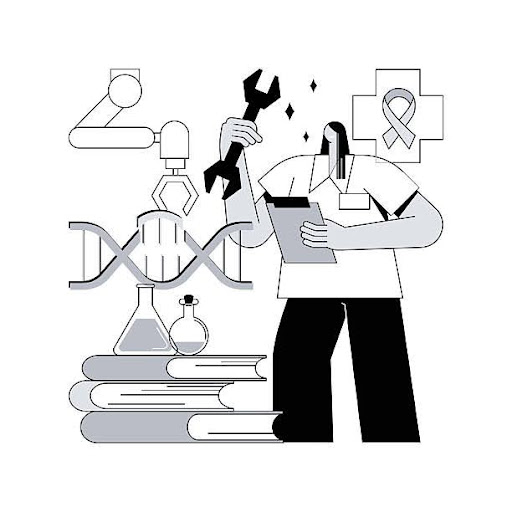Therapeutic Use Exemption: What Athletes Need to Know
Because sports are very competitive, both professionals and amateurs must go beyond their physical limits to reach success. In most cases, athletes need medical support and medications in order to maintain their top form. Still, there could be substances in some medications that testing agencies prohibit. This is where the therapeutic use exemption (TUE) plays a critical role. It’s important for any athlete dedicated to fair competition and the rules to know all about TUEs.
Understanding Therapeutic Use Exemption
A therapeutic use exemption is a formal permission granted to an athlete, allowing them to use a banned substance or method for legitimate medical reasons without facing sanctions. Because of this exemption, people with true health issues can continue playing their sports without putting their health at risk. TUEs are issued in alignment with WADA rules, helping the global fight against doping by making it possible for athletes to get needed treatment while not compromising fairness in sport.
What WADA and Anti-Doping Authorities Do
The World Anti-Doping Agency (WADA) sets the international standards for TUEs through its International Standard for Therapeutic Use Exemptions (ISTUE). WADA teams up with several anti-doping organizations from around the world to apply coherent rules for providing exemptions. In each nation, the NADO or sporting federation handles TUE applications using the guidelines set by WADA. These bodies listen to the medical cases of athletes and decide if a TUE is necessary.
Why TUEs Are Medically Needed
The reason for a TUE is that medical necessity requires it. Athletes can deal with various health problems, from long-term asthma and ADHD to immune diseases and some of the treatments they may receive include substances on WADA’s list of banned substances. You must have a properly written diagnosis and treatment plan made by a licensed medical expert. It is crucial that the athlete’s treatment cannot be replaced with something else that might involve a banned substance.
The way to apply for a TUE
Applying for a therapeutic use exemption is a detailed and sometimes lengthy process. Anyone seeking to get a TUE has to show a full history of illness, the medical reason for needing the banned substance, proof that they will use it and the drug and the dose prescribed. The application is reviewed by a Therapeutic Use Exemption Committee (TUEC), composed of medical experts who assess the case based on strict criteria.
It is required that an athlete get back to normal health without any extra performance gain. The TUEC sees to it that using the substance is essential and required by a doctor, not just a convenient choice.
Sometimes a TUE is needed after an issue has already occurred and new TUEs might be needed in emergency situations.
If time is short or if it’s related to a medical emergency, athletes can request a retroactive TUE. In cases where athletes need urgent medical care to stay safe, the rules are very important. Even so, retroactive exemptions are given only when necessary and must be documented well and checked after the release from prison.
Banned Substances and How They Are Managed
You can find a wide list of banned substances in sport, including anabolic steroids, stimulants such as amphetamines and diuretics. Medications that are commonly used in general medical practice may be on the WADA Prohibited List as they could improve or hide the use of other forbidden substances.
Should an athlete test positive for banned substances with an invalid TUE, the test is still seen as wrong, without considering their motivation. Because of strict liability, athletes have to take responsibility for all substances put onto their bodies, including medication. As a result, knowing the substances that might mean a TUE is needed and getting the TUE early prevents accidental violations.
Nearly all athletes can compete safely without breaking any rules.
Competition should never bring risks to our health or welfare. TUEs support athletes’ health and fair competition at the same time. Facing many problems, athletes affected by regular health concerns can take comfort in the fact that TUEs let them continue following medical advice and still be compliant with sporting rules.
Therapeutic procedures used by athletes are more secure and reliable when medical experts, sports groups and athletes collaborate. Athletes become better informed and safer by checking in with their medical team and national sporting organizations as the rules can change.
How essential is to always maintain transparency and keep records?
Being open is very important in the TUE process. Athletes granted a therapeutic use exemption must be prepared for regular scrutiny, including periodic reviews of their TUE status and potential re-application if their medical condition changes. If careful medical records are kept and you communicate with anti-doping officials, your exemption will stay valid and electrifying.
Athletes should inform their coaches, the team managers and sporting organizations that manage rules if they get a TUE.
International Awards and the Acceptance of TUEs
Anytime an athlete is competing abroad, they need to verify their TUE is acknowledged by the regulating international federation or administrator of the event. TUEs given by national organizations may not always be recognized abroad. Athletes ought to confirm their status of recognition before important tournaments including the Olympics, World Championships or continental games.
For this reason, it is very important for both sports organizations and anti-doping groups from different nations to coordinate on TUE essentials.
All things considered, having the latest information and being compliant is important.
The therapeutic use exemption is a vital mechanism that supports athletes in managing legitimate health conditions while competing within the rules. Thanks to strict protocols and worldwide standards, TUEs allow athletes to compete fairly and still be cared for by their sports medicine teams. Athletes are required to learn about TUE procedures, be aware of what substances they use and cooperate with doctors and specialists to keep their careers free from doping.
Being active and honest is the smartest approach athletes can take to defend their health and their reputation when higher results and trustworthiness are still expected.



